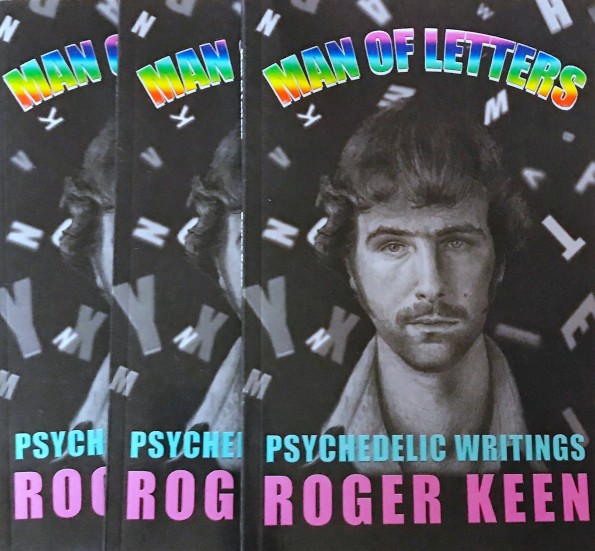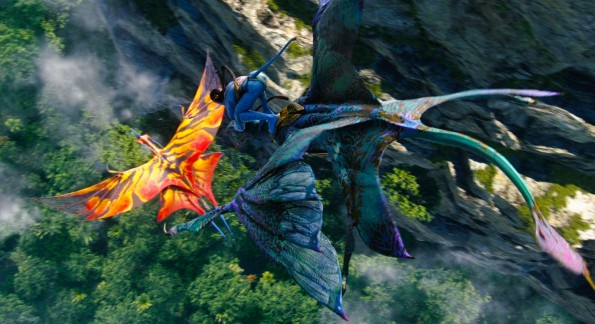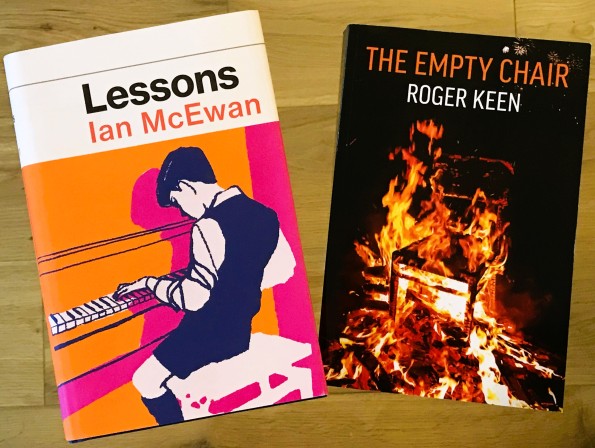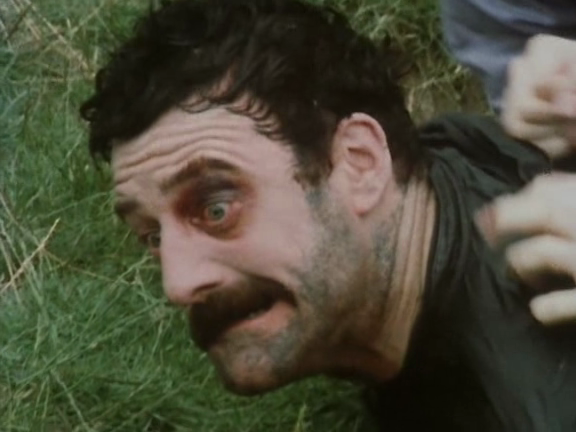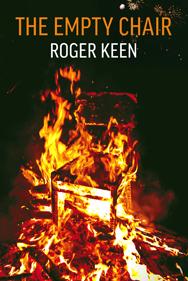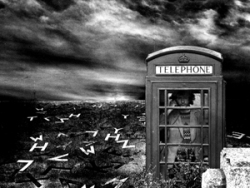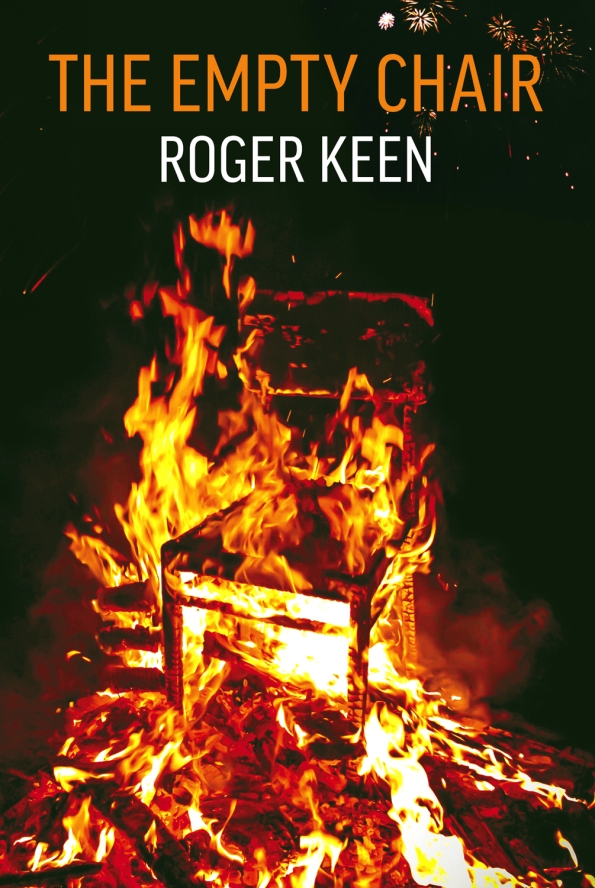LSD, Smiles and the Madness of Operation Julie
The story of ‘Operation Julie and the Microdot Gang’ has become part of hippy folklore, a ‘cops ’n’ outlaws’ clash to rival the Sheriff of Nottingham and Robin Hood’s Merry Men, or Joe Lefors and Butch Cassidy’s Wild Bunch. Many books have been written about it from the perspective of both sides of the law – from Inspector Dick Lee’s account to Leaf Fielding’s.
Now In Search of Smiles, a new biography of Alston Hughes, a key figure in the Microdot Gang (written by LSD historian Andy Roberts), has been published by Psychedelic Press. Here is my extended feature on the book and the Operation Julie phenomenon:
The term ‘Operation Julie’ is indelibly branded on the minds of anyone who knows anything about British counterculture in the 1970s. One of the biggest anti-drugs initiatives ever, it was tabloid heaven, with the bust itself, in March 1977, becoming the top news story of the day, its ramifications going far and deep.
In the public mind, drug busts were directed against familiar hard drugs such as heroin and cocaine, and increasingly cannabis, the smuggling and distribution of which had increased exponentially over the past decade. What made Operation Julie newsworthy was the target drug, LSD, at the time an exotic and much-feared substance; known to have inspired the Beatles and Pink Floyd, but also to have driven people crazy.
Therefore, the dynamics of Operation Julie were qualitatively different. The story wasn’t about a straightforward ‘good cops versus evil pushers in it for the money’, it was about ideology and the politics of personal experience, about LSD’s effect on society, and controlling the impressionable. LSD proponents, people who’d experienced the drug in significant doses, and who had undergone its transcendental, transformative effects, saw it as a catalyst to change the world for the better, a shortcut to ‘the meaning of life’, which, if it were to spread exponentially throughout the populace, would effect desirable societal change, one brain at a time…
Read more on Psychedelic Press Substack
Man of Letters: Psychedelic Writings
Out Now: A collection of fourteen psychedelic-themed essays, several of which have appeared in Psychedelic Press, The Oak Tree Review and Reality Sandwich, covering countercultural history, avant-garde and psychedelic cinema, and the psychology of altered states. They touch on figures such as Thomas DeQuincey, Charles Baudelaire and William Burroughs; and in the field of cinema, directors including Ken Russell, Roger Corman, David Cronenberg, Terry Gilliam and Ben Wheatley are explored.
The essays revisit the ‘Alphabet Wood’ hallucination of the Plym Woods in 1975, the mushroom-inspired ‘Cult of the Novel’ messianic quest to turn the world on to ‘reality fiction’, and contain updates to the ‘trippy movie’ coverage, including 2022 films Avatar: The Way of Water and Doctor Strange in the Multiverse of Madness.
The alphabetic cover comes with its own story, dating back to my ‘Strange Days’ of the mid-1970s in Bournemouth, and stretching into the realms of contemporary horror and fantasy cover design. Read the full story on Medium: A Tale of Two Covers
Further details regarding Man of Letters, and purchase links can be found here: DV Publishing
Avatar: The Way of Cliché
Thoughts on Avatar: The Way of Water, done with reference to my ‘Psychedelia in the Movies’ strand, revisited and updated in the soon-to-be-published collection Man of Letters…
The 2009 film’s innovative Fusion Camera System 3D was enchanting in a notably ‘psychedelic’ way, but does the sequel build on this trend…?
In December 2022 a long-awaited moment finally arrived: the cinema release of the first of four projected sequels to the ground-breaking 3D blockbuster Avatar, after a thirteen-year gestation period. Within the psychedelic community Avatar was noted for a having a distinct trippy quality, albeit an ambient one, which made it comparable to movies such as Stanley Kubrick’s 2001: A Space Odyssey and Alejandro Jodorowsky’s The Holy Mountain, which caried the tropes but didn’t feature the actual drugs. As Erik Davis said in his 2010 article ‘Aya Avatar’:
Eco-futuristic dreams are now indistinguishable from the visionary potential of media technology itself. Indeed, whether you are talking form (ground-breaking 3D animation) or content (cyber-hippie wetdream decor), Cameron’s visual and technological rhetoric is impossible to disentangle from hallucinogenic experience.
Indeed Avatar, together with Tim Burton’s Alice in Wonderland – released three months later – seemed to portend a new dawn in ambient psychedelic movies where 3D and state-of-the-art VFX enabled a quasi-altered state within the cinema viewing experience itself… Read More on: Medium
The Singing Detective and other BBC Classic Dramas
To celebrate its centenary year, the BBC has been airing reruns of many of its best and most-loved classic dramas on BBC Four. My favourites are Boys from The Blackstuff, Our Friends in The North, House of Cards and, of course, The Singing Detective. There is something warm and fuzzy about watching these works, from what has now in the 2020s become a ‘bygone age’. They’re all in colour, yes, but the 4:3 screen ratio, leaving big black side borders on today’s televisions, and the somewhat grainy and not very high resolution 16mm film, lend an archaic atmosphere that is nonetheless counterbalanced by sweet nostalgia.
What has come over from the rewatching, personally, is how much these dramas mean to me and how they have influenced my writing. Take the episode Yosser’s Story in Boys from The Blackstuff, which shows the unemployed and unstable eponymous character in the throes of an existential crisis, leading to him becoming totally unhinged. Bernard Hill’s peerless performance got everything just right – the frustration, the sense of victimhood, the self-pity, and the crazy fulminating anger – so much so that back in 1982 he reminded me all too clearly of my own father, when he got into those kinds of moods.
Four years later, when I commenced my novel about a bad father, The Empty Chair, Yosser became a prototype for various versions of the bad father character, and when the film-within-the-novel develops, it is an older Bernard Hill who is cast to play that screen father.
Similarly, The Singing Detective, first broadcast in 1986, the very year The Empty Chair narrative commences, became a kind of ongoing parallel story. Its progression through misanthropy, psychosomatic illness, analysis of childhood, psychotherapy and the act of writing itself, mirrored everything in my novel. And when filmmaker Steve Penhaligon reaches the final stages of realising his film about his life, it is The Singing Detective’s mimed song-and-dance routines that unlock his idea to do the same with prog rock – King Crimson’s ‘21st Century Schizoid Man’ and Jethro Tull’s ‘Living in the Past’ to name two of the tracks.
In view of The Singing Detective’s rerun, I have republished a review I did for The Digital Fix from about ten years ago: The Singing Detective: The Triumph of the Invented Self
Will Self and the Drug Memoir
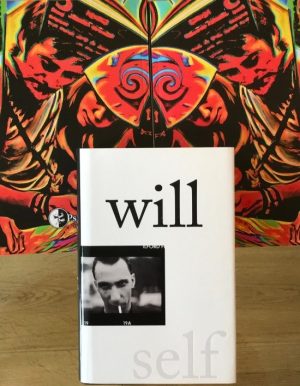 My article “Will Self and the Drug Memoir” is now available in the new Psychedelic Press journal XXXVII, and an extract is also out on their Substack. The piece focuses on Will Self’s memoir Will – which details his drug use from age seventeen to twenty-five, taking in his years as an Oxford student and concluding with his rehab in Weston-super-Mare – setting this against a brief history of the drug memoir genre and featuring the key works of Thomas De Quincey, Charles Baudelaire, Fitz Hugh Ludlow, Aleister Crowley, William Burroughs and others.
My article “Will Self and the Drug Memoir” is now available in the new Psychedelic Press journal XXXVII, and an extract is also out on their Substack. The piece focuses on Will Self’s memoir Will – which details his drug use from age seventeen to twenty-five, taking in his years as an Oxford student and concluding with his rehab in Weston-super-Mare – setting this against a brief history of the drug memoir genre and featuring the key works of Thomas De Quincey, Charles Baudelaire, Fitz Hugh Ludlow, Aleister Crowley, William Burroughs and others.
Though Will Self’s memoir mainly concentrates on heroin use and addiction, there are sections on other drugs, including LSD, and my article highlights this and also Self’s psychedelic philosophies.
“In his recent drug memoir, simply entitled Will, Will Self writes about himself in the third person, presumably to gain an extra measure of objectivity in what is necessarily a significant act of self-examination. Early on he says that drugs are neither a hobby nor a genre, but drug memoirs can certainly be considered as such, or at least a category—Amazon lists them under ‘Alcohol & Drug Abuse Biographies’, which includes the usual raft of celebrity confessional tomes, rubbing shoulders with the classics, such as Aldous Huxley’s The Doors of Perception: And Heaven and Hell, which, 68 years after its first publication, still sells well enough to make the top 100.”
Read more on Psychedelic Press Substack


